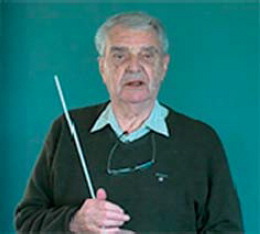Björn Folkow passed away at the age of 91 on 23 July 2012 after a short illness. He was an eminent teacher of physiology and his studies of pathophysiology of hypertension greatly contributed to our understanding of this widespread disease. Importantly, Björn Folkow taught numerous clinician researchers how to adopt a physiological and pathophysiological understanding into their activities.
Björn Folkow always demonstrated a special analytical approach to physiology, and he researched vital and important areas of cardiovascular physiology, which many other researchers often oversaw. A continuing theme of his research was the vascular reactivity and remodelling as well as the impact of the sympathetic nervous system on circulatory control (Folkow 1987).
From an early stage in his career, Björn Folkow studied functional influences of myogenic or/and neurohormonal control mechanisms on transmural and driving pressures in various vascular beds. He also addressed important scientific research questions related to the relationship between pressure and structural wall/lumen ration, both in the heart as well as in vascular beds. Importantly, Björn Folkow contributed in his early studies to much of the knowledge on which we base our current understanding of vascular hypertrophy in hypertension. An additional area of interest to Björn Folkow was the role of the limbic–hypothalamic system in physiological as well as psychological stress situations.
After his retirement, Björn Folkow took a great interest and actively participated in the scientific debate on high salt and hypertension. His point on sodium chloride was that although disturbances and risks appear at both extreme ends of sodium intake, counter-regulatory mechanisms are capable of maintaining mean pressure within the normal range, within a wide (15–20-fold) range of salt intake both in healthy man and in rats (Folkow 2003). Although, he recognized the importance and full extent of salt intake/metabolism on circulatory physiology, he remained sceptical about societal and population intervention programmes for reductions of salt intake. Björn Folkow's point was that the induction of primary (essential) hypertension appears to be far more dependent on present-day psychosocial influences by means of central enhancements of neuro-endocrine activities. However, at the same token, he did acknowledge that it is a different matter that “salt contents in processed foods should be declared, and kept low – first, because ‘salt sensitivity’ is not uncommon, and second, salt is then easy to add but impossible to eliminate” (Folkow 2003).
His standing as an international scientific authority in the pathophysiology of hypertension and several areas of cardiovascular medicine was undisputed. His support was instrumental in the start-up and rise of the journal Blood Pressure and he served as Senior Scientific Councillor and honorary Editor for the journal for over 20 years.
Björn Folkow was born in Halmstad in southern Sweden in 1921 and was appointed Professor of Physiology at the newly established Medical School at the University of Gothenburg in 1961. He served as full professor and as chair of the Department until 1987, when he retired. As a Head of Department, Björn Folkow showed that it is possible to combine great scientific authority with generosity and consideration. Over 62 years of continuous activity in academic research and teaching, Björn was always present and personally available to students and co-workers until shortly before his death.
Björn Folkow was member of several prestigious societies during his career, such as International and European Society of Hypertension. He was elected member 1178 of the Royal Swedish Academy of Sciences and served as a member of the “Class of Medical Sciences” until his death. He was a recipient of the prestigious Anders Jahre award in 1980 and an honorary member of the American Physiological Society.
In 1987, the European Society of Hypertension (ESH) in collaboration of AstraZeneca instituted the “Björn Folkow Award” to be presented to “a person or persons who have carried out original research in physiology that has contributed to our understanding of the pathogenesis of hypertension”. Over the years, the “Björn Folkow Award” has become one of most prestigious prizes of the society, and presented to several well-renowned scientists who in various ways made permanent contributions to the understanding of important physiological and pathophysiological mechanisms in hypertension ().
Table 1 Winners of the ESH Bj rn Folkow Award.
In the weeks before his death, Björn Folkow maintained a presence at the Department of Physiology at Sahlgrenska Academy, a habit for which he was known throughout his life. His behaviour in his last years was typical of Björn Folkow's entire life. He understood what was important, he knew how to set his priorities and focus on achieving specific goals. It is a stroke of luck for all of us that cardiovascular physiology was the love of his scientific life. He left behind him an impressive legacy, and set important historical marks in the pathophysiology of hypertension for future generations of cardiovascular scientists.
Björn Folkow is survived by his wife Bjørg and by six sons and daughters, including one son who has followed in his footsteps as Professor of Physiology in Tromsø in northern Norway. Outdoor life at Vrådal in Norway and fishing at the archipelago of Gothenburg were among his passions apart from physiology.
We will remember Björn Folkow affectionately not only as a scientific colleague and friend, but also as a great source of inspiration both professionally as well as privately.
References
- Folkow B. Physiological aspects of primary hypertension. Physiol Rev. 1982;62:347–504.
- Folkow B. Some reflections on today's hypertension research. Blood Press. 1992;1:5–8.
- Folkow B. Man's two environments and disorders of civilisation: Aspects of prevention. Blood Press. 2000;9:182–191.
